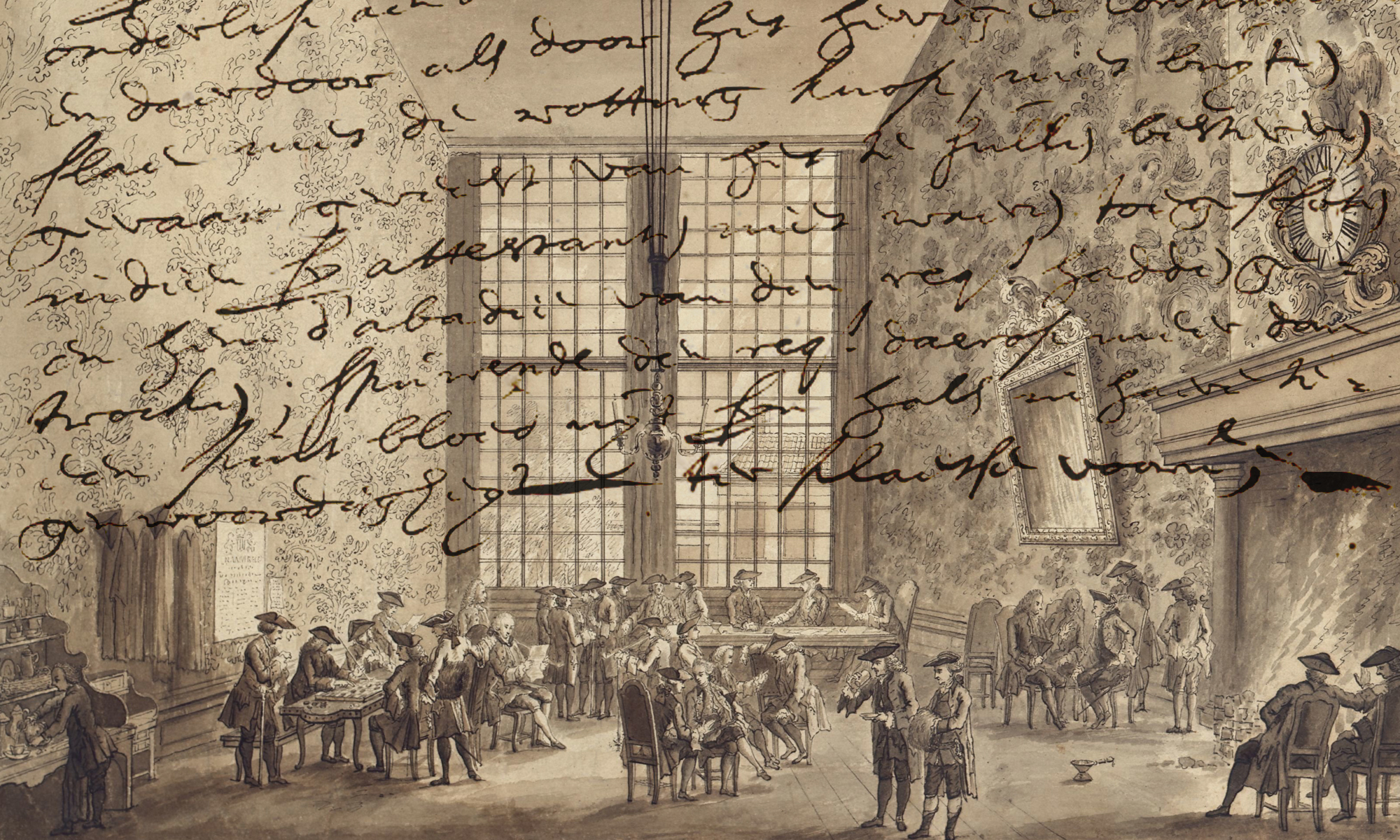In several Dutch books, plays, and poems written between the seventeenth and nineteenth centuries, coffeehouses are portrayed as spaces in which rational and civilised conversation took place. According to these texts, the people (more specifically, men) who visited these spaces did so to study, write, and discuss politics. This, we are told, encouraged them to be more civil and well-mannered, which in turn promoted the adoption of these qualities and behaviours across society as a whole. What we see here is the so-called ‘verburgerlijkingshypothese’ – or, in English, the ‘civilisation hypothesis’ – in all its glory. However, because these cultural processes are described in fictitious works, they don’t necessarily conform to reality ‘on the ground’. To find out what really went on in the coffeehouses of eighteenth-century Amsterdam, I did some research in the notarial records of the Amsterdam City Archive, a wide range of judicial documents prepared by the city’s legal scribes. And that’s where it gets interesting…
Continue reading “Conflict and the Coffeehouse: Three Stories from Eighteenth-Century Amsterdam”

